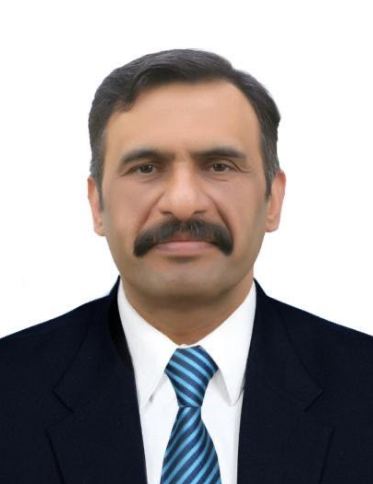Dr Muhammad Rizwan Bhatti
The transformation of behaviour is as important as change of obscurantist ideology. Change of behaviour and reorientation of ideology is the crux of deradicalization process. One of the most formidable challenges confronting the agencies to survey the de-radicalization efforts is great deal of inconsistency, aggravated by lack of information, regarding which entities, either public or private, oversee the actual rehabilitation and reintegration program at Sabaoon, Mishal or at any of other locations. Sabaoon was intended to return to civilian authorities in the nascent stage, yet the project Mishal was run by Military administration from the very outset.
This invariably leads to incongruities and inconsistencies in methods, modus operandi, resources and cherished outcomes, which further despoils the overall counter-terrorism prospects of success of such rehabilitation programmes. Notwithstanding, the specter of rejection, retribution by erstwhile terrorist organization dwindles the possibility of accepting de-radicalization arguments.
There would be another looming distress for loss of status and respect from peers in case of abandoning organizational ideology. For that reason, motivational handicap to convince the high status figures might be greater than the motivational barrier to convince low status figures within the terrorist organization.
Undoubtedly, The civil society of Pakistan has embraced multiple offensives both hard and soft measures in order to mobilize, educate, apprise and sensitize the general masses about the imperils of militancy, extremism and violent extremism, the flip side is that the public awareness programmes are held for an ephemeral period. This ad-hoc approach is rather reactionary instead of adopting long lasting pro-active approach towards elimination of violent militarism.
The campaigns against extremism should be sustained and durable in impact. The public should be kept aware on a large scale with greater socio-political impact. In Adhocism, long term planning is missing; these vigorous de-radicalization efforts should be continued even when there is interlude of peace and dormant violence. The administration needs to use developed methods to rehabilitate the host communities through dialogue and integration activities and continue to neutralize the volatile areas, nefarious elements and eliminating factors that conducive to triggering recidivism.
Militancy has become festering sore in Pakistan. At present, we are facing ethno-national, socio-political and faith-based terrorism. Counter terrorism department is doing splendid efforts in the prevention of violent extremism and extermination of terrorist networks. The will of Government is awfully essential to end the menace of militancy from society. For the eradication of terrorism, cohesive and integrated approach is required on the national level.
NACTA has to prove herself as National Body to fight against extremism and terrorism. Sustainable approach, to a large measure, requires national deradicalization policy, inter-agency coordination, community based rehabilitation programmes, psychological well being, economic support and perennial surveillance/ monitoring mechanism to avert recidivism.
The polarization of social fabric and religio-political fragmentation has been a mammoth impediment in evolving effective counter-extremist responses. The radicalization is rampant in Pakistan because the causes and grievances are galore. The presence of few de-radicalization and rehabilitation centers is providing paltry relief in respect of eradication of terrorism. The reformed militants received hostile environment in the living society. It is good to steer clear of violent ideology but it needs to great efforts to curb them for long. The host society plays a pivotal role in providing conducive environment for curbing violent ideologies. In the absence of all-embracing host community, the fear of relapsing remains quite impending.
Bad governance, social economic disparities and ever-increasing political fragmentation produce a rich breeding ground for the growth and mushrooming of radicalization. Without addressing the root problems, the eradication of radicalization is impossible. There is a strong need of broad based de-radicalization approaches to combat extremism. Counter violent extremism approach is need of the hour to tide over the menace of militancy. Without adopting holistic de-radicalization paradigm, the defeat of extremism in Pakistan will remain an arduous task.
The gravity, scale and extent of radicalization as malady are horrendous. The outcome of de-radicalization efforts is frail, short-lived and narrow in fructification. The allocation of funds is scarce. These rehabilitation centers cannot run on the donations and offertory of NGOs and philanthropic generosities. These programmes require state ownership to meet with success indices. The possibility of Sustaining these rehabilitation programmes on perennial basis and then enlarging them as a national-level activity seems a tall order.
Pakistan also requires establishing an independent body for over- sighting rehabilitation programmes, propagation of national narrative and structuring legal frameworks available to militants. These efforts should emphasis on extermination of extremism, reformation of education system, buttressing the social inclusivity and mutual co-existence in society. National Counter Terrorism Authority (NACTA), a government-run think tank established for the creation of a counter-terrorism policy, has framed a National Prevention of Violent Extremism (NPVE) policy.
The incumbent National Coordinator of NACTA Khalid Chouhan emphasized in the conference on “National Dialogue for prevention of Extremism” that whole –of- society approach is essential to root out the causes of extremism and build a resilient society. Not-withstanding, the myopic Adhocism policy spoils the long-term efficacy of deradicalization in Pakistan. However, it is never too late.
There is a dire need to adopt pro-active, cohesive, integrated and institutionalized measures instead of resorting to short-term, slapdash and fragmented responses to materialize the concrete counter-radicalization efforts. As security situation is downward trajectory, so, counter violent extremism policies need to be translated into practical endeavours. However, the most important for Pakistan is to devise a strategy of de-radicalizing, rehabilitating and reintegrating militants back into society through the vigorous enforcement of sustained National Internal security policies and propagation of national counter-narratives.
Dr Muhammad Rizwan Bhatti is Inspector in police & Ph.D Political Science from GCUF. He can be reached at [email protected] X: @rizwanbh79

















